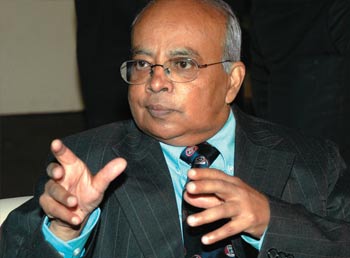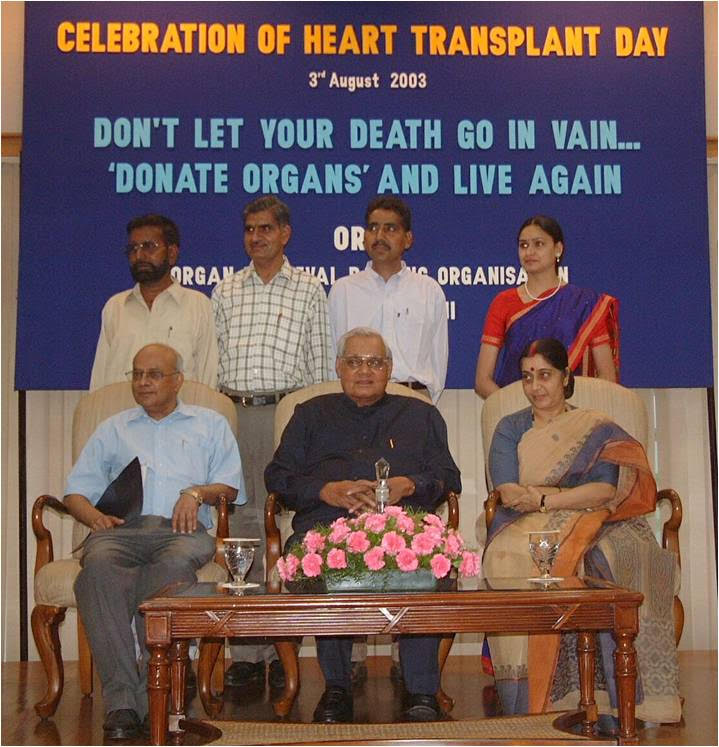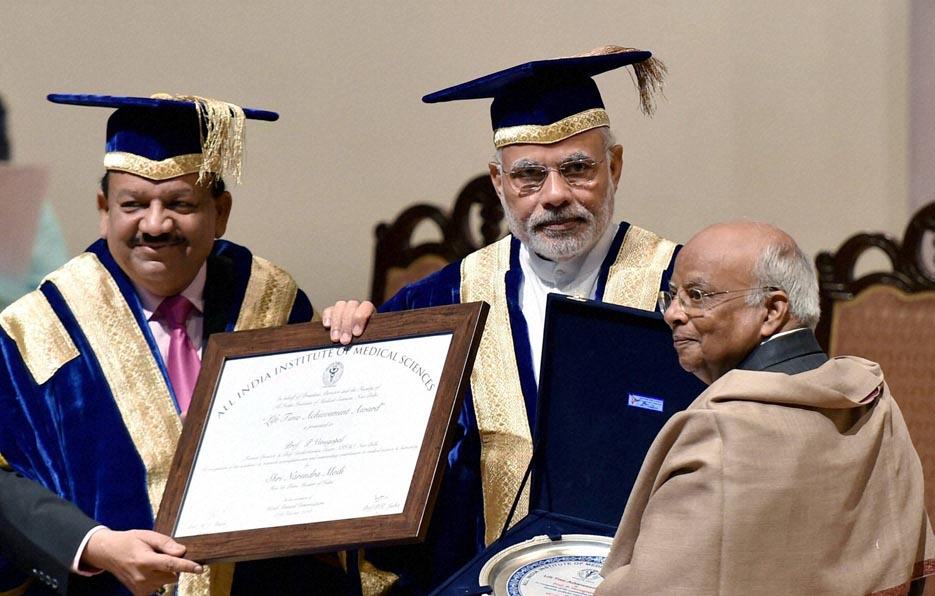
The fascinating story of India’s first heart transplant-victory over skepticism
he very first heart transplant procedure in India was conducted in AIIMS on August 3, 1994. And as you may expect, things weren’t all easy for the doctors back then.
As Dr P Venugopal, who led the doctors in the surgery said, “We were constantly mocked and criticized by media and academic circles. Renowned journalists were coming to see whether we had carried out the transplant or not. There was a lot of skepticism.”

Dr P Venugopal
The patient and the donor
The first heart transplant patient of India was Devi Ram, a 40 year old heavy industry worker. And even after the transplant, the patient’s odds for survival were deemed slim. As Dr Venugopal, ex-director and former head of cardiothoracic centre at AIIMS said to a news site, “The patient was not expected to survive more than 3 months but managed to live up to 15 more years before dying of a brain tumour.”
The donor was a 35 year old woman. She had died of brain hemorrhage in the hospital’s neurosurgery ward on the very same day. Ram’s blood was compatible with that of the donor.
Another fact which facilitated the surgery was the passing of the Transplantation of Human Organs Bill. The bill was passed on 7 July 1994, making donation of organs legal.

The patient Devi Ram(back row,far left) at a function
The weight of previous failures, and the triumph over them
Prior to this, a transplant attempt was made in Bombay in 1968. However, the patient didn’t survive. Even before that, in 1967 the world’s first heart surgery was performed in South Africa. In that case too the patient died- within 18 days of the surgery.
The weight of such failures hung heavily on the shoulders of the surgeons at AIIMS. As Dr. Venugopal says, “An unsuccessful transplant would’ve meant destroying the procedure for 20 years.”
The surgery which was performed by a team of 20 doctors took all of 59 minutes.
Describing the surgery Dr. Venugopal says, “The process involves cutting a beating heart while the patient is alive and replacing it with another heart. The surgery was an in house transplant, meaning the donor was available at the same hospital as the recipient. But nowadays the infrastructure is improved and sophisticated. The heart can be preserved for 4-5 hours and transported anywhere.
“We were confident and prepared. The surgery was planned well and properly executed,”he adds. He attributes the success of the surgery to the team’s hard work.
The team of doctors responsible for the surgery included surgeons, cardiologists, anesthetists, microbiologists and biochemists. They were trained in institutions such as Stanford in the US and the UK. Dr Venugopal says that the same team is responsible for the 50 successful heart transplants. (AIIMS recently celebrated its 50th successful transplant).
Greatest challenges
The biggest challenge for a transplant surgery is much the same today as it was then- the unavailability of donors. According to Dr. Venugopal, “There was a shortage of hearts. In 1970-80s, many people were going abroad and spending almost a crore for a transplant. At AIIMS, we did it for free.”
Today, a heart transplant would cost around Rs 15 to 20 lakh in India. In government hospitals like AIIMS, the cost would be around Rs. 1 Lakh.
Yet another issue was that the idea of a person being brain dead was unacceptable for many. This created reservations regarding organ donations. But Dr Venugopaa says that things haven’t improved much in terms of surgical techniques. However, that’s not the case with availability of donors, he says.
The surgery that changed everything

Dr P Venugopal receiving the Lifetime Achievement Award from PM Narendra Modi
According to Dr Venugopal, it was the first transplantation that changed the outlook towards the procedure.
“People started showing faith in the scientific procedure. More and more people started coming forward to get treated. It gave hope to many patients suffering from heart problems,”he said. “It required sacrifice, dedication and perseverance. The same procedure of heart transplantation that was established 22 years ago is being used to save lives. It was necessary to develop the technology for the benefit of people as no such surgery was available at that time.”
With the surgery the life expectancy could rise by up to 30 years, he says.
More number of people opt for the procedure these days- a state of affairs for which the doctor is quite happy. In his own words, “It is very popular in the South India, especially in Kerala and Tamil Nadu. It not only increases the life span of the individual but also provides quality of life.”
Since the first surgery in 1994, more than 250 heart transplants have been successfully performed in India.
The doctor, who is a recipient of the Padma Bhushan has so far performed 28 heart transplants.
Image credits: rediff.com, Twitter, Dr. P Venugopal, tn-news.com